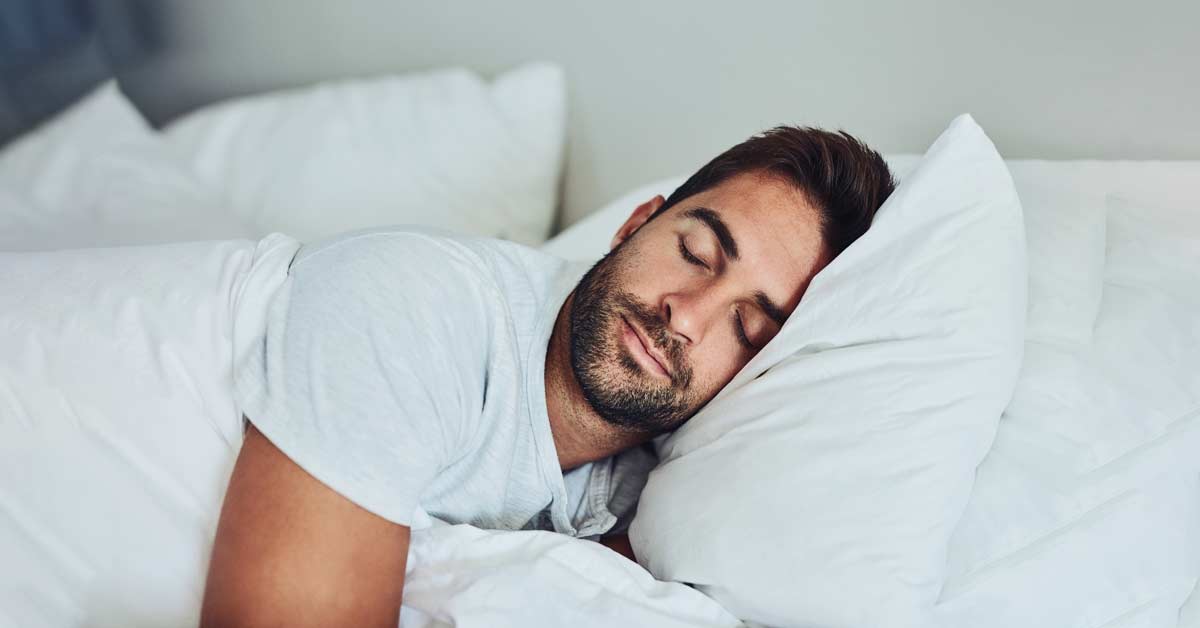
Sleep it Off
According to NDTV, 1 in every 5 people don't get enough sleep every night.
Many people like to squeeze out a few more extra hours in their day, whether it be for work or recreation, but they sacrifice the wrong thing to do it. Instead of trying to forsake their sleep people should work more efficiently or decide to do it at the later date. Getting enough sleep is especially important during this pandemic as sleeping is the one time when our body can dedicate all resources to fight any germs and diseases that might have infected us.
Sleep is essential for the physical upkeep of the body, but it also helps maintain cognitive skills, such as attention, learning, memory, and emotional regulation.
According to Erica Jansen, sleep touches almost every aspect of health as it can affect anything from our physical and mental condition the next day to reduce the risk factor of and developing immunity against various diseases and viruses. You might have noticed that one day if you hardly got any sleep, the next day you feel sluggish, moody, and tired. On the other hand, if you got the proper amount of sleep on another day then the day after that you probably felt refreshed, energetic, and maybe even cheerful. All that change came simply from how much sleep you got! Furthermore, according to the CDC, not getting enough sleep can increase one's chances of getting type 2 diabetes, cardiovascular disease, and obesity.
Getting more sleep can also drastically improve your performance at getting work done. According to an article written by Ana Sandoiu, not only does sleeping help us learn new things faster, but it also helps to increase the neuroplasticity of our brains. Neuroplasticity is the brain's ability to rewire itself and create new connections between neurons.
Furthermore, sleep can help one be more emotionally stable and reduce their risk of developing a mental health condition. People who don’t get enough sleep will be more prone to getting anxiety and depression which in itself could lead to further sleepless nights. Sleep also helps us to perceive reality correctly. Research suggests that if one doesn't sleep for 3 or more nights they will have perceptual distortions, hallucinations, and delusions. When scientists reviewed their research they were also able to find out that poor sleep, or insomnia, preceded the development of bipolar disorder and schizophrenia. Insomnia also increased the chances of one to commit suicide.
Now that you have made it this far you are probably wondering if there are any tips as to how to get more/better sleep. One of the best ways that I have found to improve one's sleep cycle is a form of cognitive-behavioral therapy for treating insomnia (CBT-I). To test its effects, Professor Freeman and a few of his colleagues randomly chose 3,755 students with insomnia from 26 different colleges and made them receive either CBT-I or usual care. After some testing, Freeman found that students who received the CBT-I treatment had a more significant improvement in sleep cycles than the students who received the usual care. Not only did the student who received CBT-I have better sleep, but they also experienced less paranoia and fewer hallucinations.
When you begin the therapy you first learn about what exactly sleep is and how to change your sleep-related behaviors and thought processes. Then you learn about sleep hygiene which involves things such as limiting naps and not using electronics 30 minutes before or during bedtime. Next, you are taught three behavioral techniques: Sleep restriction, stimulus control, and relaxation. Finally, you learn about a few cognitive techniques, some of which include belief restructuring, mindfulness, imagery, and paradoxical intention. Of course, this is a brief overview of CBT-I but if you think this might help you then I recommend searching about it and understanding it more in-depth.
Sleep is a very important factor in maintaining our health and living a happy and fulfilling life. We should try to do our best to get enough sleep in the day otherwise your life might start going downhill before you even realize it. While you might think that you are fine if you get a mere 1 hour of sleep or simply not sleeping at all, you are not. Lack of sleep takes its toll both mentally and physically.
Citations
Jansen, Erica. “Sleep 101: Why Sleep Is So Important to Your Health: The Pursuit: University of Michigan School of Public Health: Adolescent Health: Child Health: Chronic Disease: Epidemic: Mental Health: Obesity.” The Pursuit | University of Michigan School of Public Health | Adolescent Health | Child Health | Chronic Disease | Epidemic | Mental Health | Obesity, 2 Mar. 2020, sph.umich.edu/pursuit/2020posts/why-sleep-is-so-important-to-your-health.html#:~:text=Sleep%20is%20essential%20to%20every,touches%20every%20aspect%20of%20health.
Kingsland, James. “Mental Health: What Role Does Sleep Play?” Edited by Hannah Flynn, Medical News Today, MediLexicon International, 4 Aug. 2020, www.medicalnewstoday.com/articles/sleep-and-mental-health#How-does-CBT-for-insomnia-work?
Sandoiu , Ana. “The Neuroscience of Sleep.” Edited by Jessica Beake, Medical News Today, MediLexicon International, 6 Aug. 2020, www.medicalnewstoday.com/articles/what-happens-in-the-brain-when-you-sleep#The-neurons-that-make-us-forget-dreams.
Perez, Cassandra. “20 Percent People Sleep Deprived Globally: Survey.” Sleep Review, 16 Mar. 2020, www.sleepreviewmag.com/curated/20-percent-people-sleep-deprived-globally-survey/.

































Comments